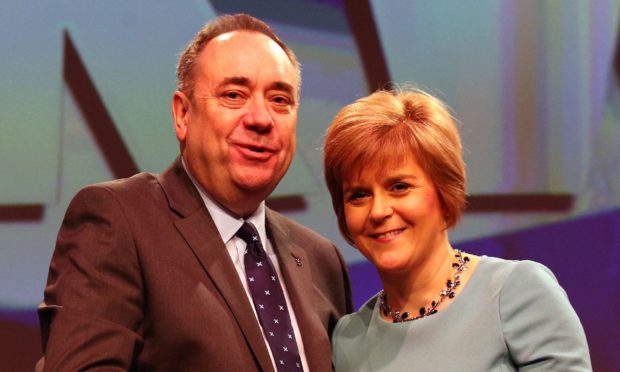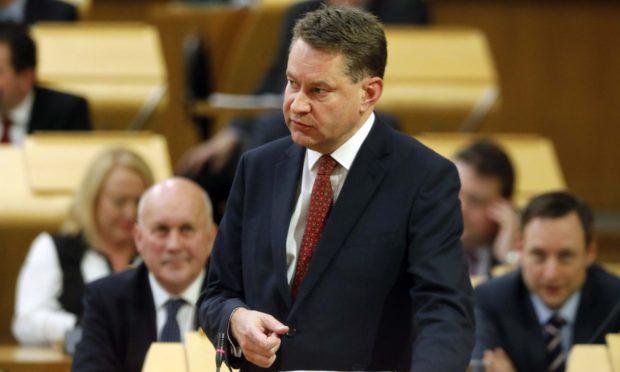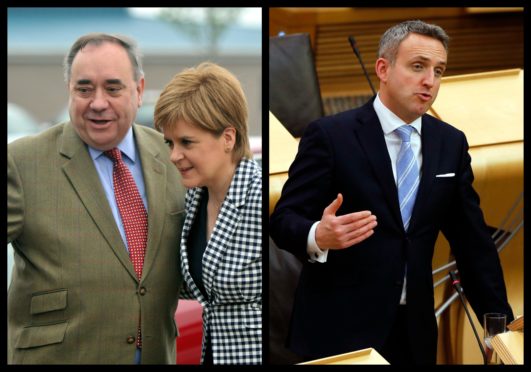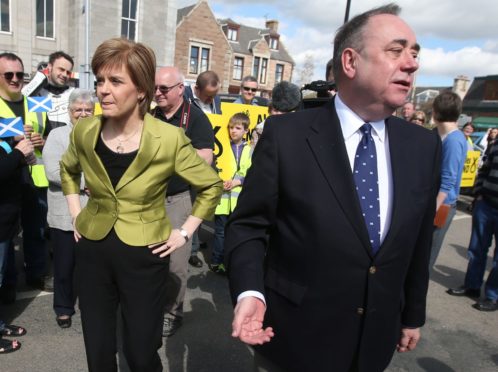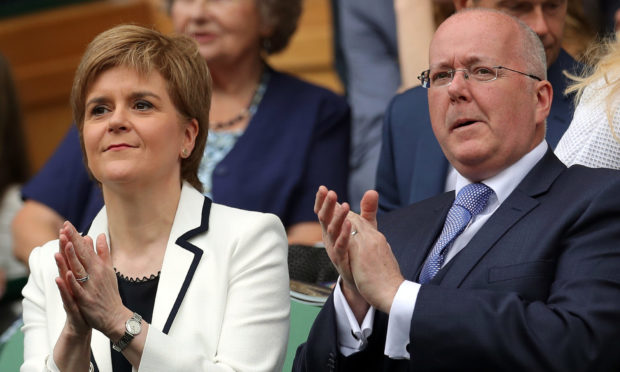Nicola Sturgeon called for new Scottish Government harassment policy to include former ministers two days after one of Alex Salmond’s accusers met with one of her close aides, it has emerged.
Newly published correspondence has confirmed one of the two women, who went on to make a complaint against Mr Salmond, had meetings with Ms Sturgeon’s principal private secretary, John Somers, on November 20 and 21 2017.
According to the letter submitted to the Salmond inquiry, the woman – known as Ms A to protect her identity – made a “disclosure” to Mr Somers at their first meeting.
Shortly afterwards, on November 22, Mr Somers forwarded a letter from Ms Sturgeon to Scotland’s most senior civil servant, Leslie Evans, asking the permanent secretary to confirm that the new harassment policy being drawn up included consideration of complaints made against former ministers dating from when they were in office.
The proximity of Mr Somers’ meeting with the future complainer to the first minister’s demand for the inclusion of former ministers will fuel speculation that the new policy was drawn up with Mr Salmond in mind. The Scottish Government, including Ms Evans, has denied that was the case.
I would like you to consider ways in which we are able to address if necessary any concerns from staff – should any be raised – about the conduct of current Scottish Government ministers and also former ministers, including from previous administrations regardless of party.”
Nicola Sturgeon to Leslie Evans on November 22 2017
The Scottish Government has issued a statement saying the disclosure made to Mr Somers was “confidential” and was not discussed with Ms Sturgeon.
‘Who knew what and when’
Labour MSP Jackie Baillie, who sits on the Salmond inquiry, said that the sequence of events – from the meetings to Ms Sturgeon’s letter “appeared to have been co-ordinated”.
Ms Baillie added: “The committee will be very interested to explore, exactly who knew what and when.”
Another member of the committee, Murdo Fraser of the Tories, accused the government of only providing “tiny scraps” of information.
Mr Fraser said: “The First Minister must reveal why she didn’t tell Parliament before now that her chief personal civil servant held these meetings.
“We know there was a ‘disclosure’ but that’s as far as it goes. We need Mr Somers to clarify if he was told about these concerns and if he ever mentioned them, even in passing, to the First Minister before she claims to have found out on April 2, March 29 or whatever date Nicola Sturgeon is now using.
“The First Minister has questions to answer about the timeline of events, given that her closest civil servant received this ‘disclosure’ in the days before his boss asked that the procedure apply to former ministers.”
Mr Fraser added: “The amount of information that is still being kept secret is astonishing. Who knows what else is hidden in the SNP’s vaults. The timeline they’re claiming is growing murkier.”
Meeting with Ms A
The two meetings between Mr Somers and the woman, known as Ms A to protect her identity, were referred to in a letter submitted to the Salmond investigation by Deputy First Minister John Swinney.
Mr Swinney’s letter mentioned her “disclosure” but gave no more details of what that had involved.
The letter was dated November 6 and was sent shortly after Mr Salmond’s lawyer, David McKie of Levy and McRae, told the inquiry the meetings had taken place.
Mr McKie’s claim, on behalf of Mr Salmond, led to the Conservatives accusing the Scottish Government of trying to cover up secret meetings.
At the first meeting, Ms A made a disclosure to Mr Somers. No-one else was present at either meeting.”
John Swinney
The Holyrood committee overseeing the Salmond inquiry wrote to Mr Somers to get more information on the meetings.
Mr Swinney replied on the civil servant’s behalf and said the two meetings with Ms A were on November 20 and 21 2017.
Mr Somers produced diary entries confirming the meetings had taken place on December 21 2018 after a search of documents.
According to Mr Swinney’s letter, that was the first time Mr Somers had been asked to make such a search.
Mr Swinney wrote: “At the first meeting, Ms A made a disclosure to Mr Somers. No-one else was present at either meeting.”
The deputy first minister added that Mr Somers had never met the other woman to make a complaint against Mr Salmond.
The complaints triggered an internal investigation by the Scottish Government of Mr Salmond’s behaviour under the new harassment procedure that covered former ministers. Mr Swinney said Mr Somers was not involved in creating the new procedure or the complaints handling process.
Judicial review
The Salmond inquiry is examining the way the complaints were handled including the former first minister’s successful judicial review against the Scottish Government.
Mr Salmond’s defeated the Scottish Government at the Court of Session when it was decided the complaints process was tainted with apparent bias.
The Scottish Government’s defeat led to more than £500,000 of taxpayers’ money being paid out for Mr Salmond’s legal costs.
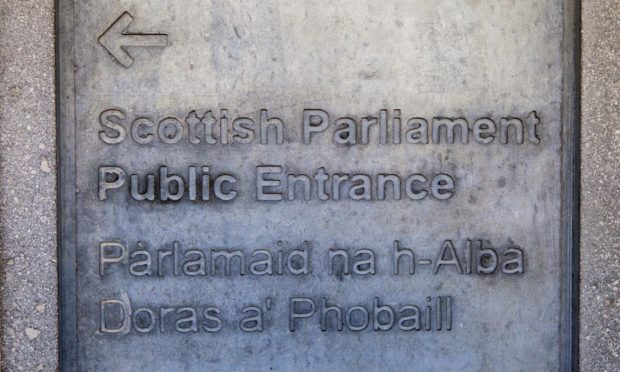
The tranche of documents previously submitted to the Salmond inquiry by the Scottish Government includes the letter sent by Ms Sturgeon on November 22 2017. The documents show that it was Mr Somers who emailed the letter to Ms Evans.
Ms Sturgeon’s letter said: “As is clear from the continued media focus on cases of sexual harassment, in many instances, people are now making complaints regarding actions that took place some time ago. I wanted to make clear that in taking forward your review, and the new arrangements being developed, you should not be constrained by the passage of time.
“I would like you to consider ways in which we are able to address if necessary any concerns from staff – should any be raised – about the conduct of current Scottish Government ministers and also former ministers, including from previous administrations regardless of party.
“While I appreciate that the conduct of former Ministers would not be covered by the current Ministerial Code, I think it fair and reasonable that any complaints raised about their actions while they held office are considered against the standards expected of Ministers. I would be grateful for confirmation that this particular aspect is being included as part of the review you are leading.”
A Scottish Government spokesman said: “The disclosure to Mr Somers was and remains confidential, and was not discussed with the first minister or the chief of staff.
“The First Minister has set out to parliament when she was informed of information in relation to the complaints.
“As the First Minister has made clear, she looks forward to giving evidence in person to the committee in due course, and is awaiting a date from the committee to do so.”
